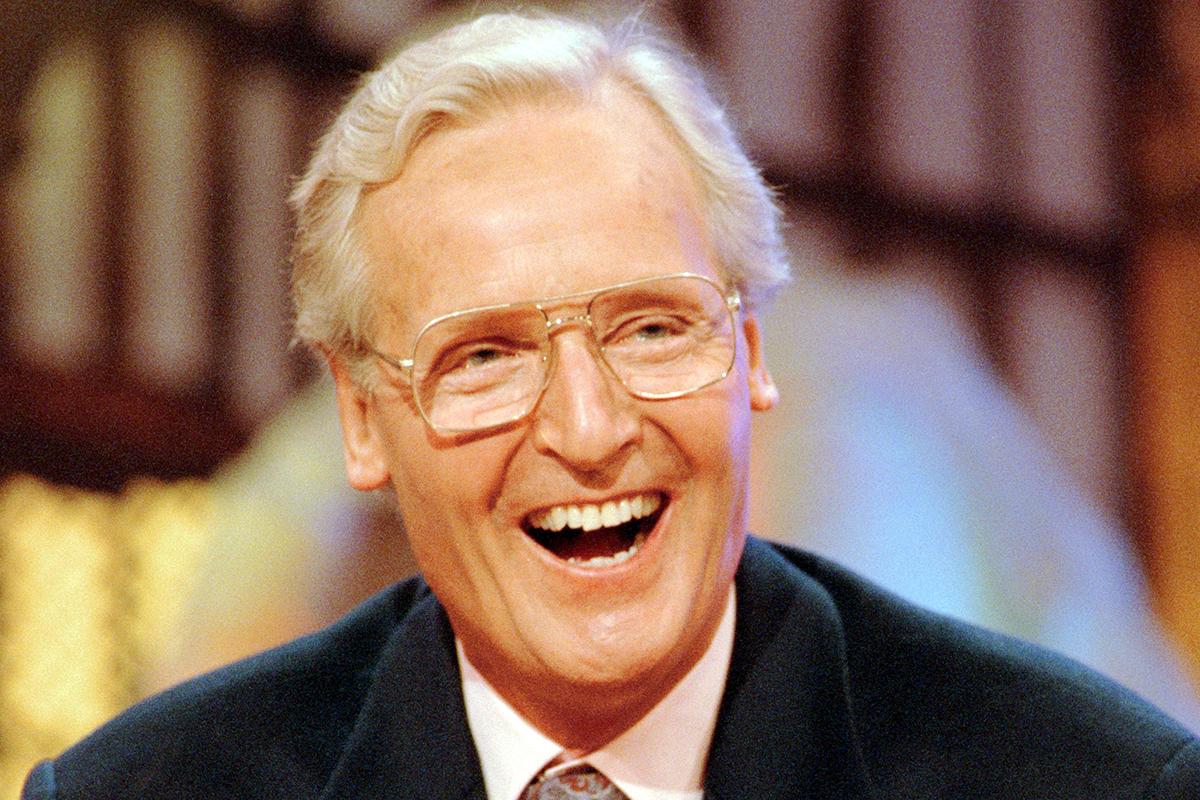The airwaves have lost an icon in Nicholas Parsons – the Just a Minute host with a shining intellect he never felt the need to show off
Parsons’ apparent lack of ego made him the ideal custodian of the beloved show’s hot seat, writes Ed Power

Your support helps us to tell the story
From reproductive rights to climate change to Big Tech, The Independent is on the ground when the story is developing. Whether it's investigating the financials of Elon Musk's pro-Trump PAC or producing our latest documentary, 'The A Word', which shines a light on the American women fighting for reproductive rights, we know how important it is to parse out the facts from the messaging.
At such a critical moment in US history, we need reporters on the ground. Your donation allows us to keep sending journalists to speak to both sides of the story.
The Independent is trusted by Americans across the entire political spectrum. And unlike many other quality news outlets, we choose not to lock Americans out of our reporting and analysis with paywalls. We believe quality journalism should be available to everyone, paid for by those who can afford it.
Your support makes all the difference.Even as a young man there was something of the wise grandfather about Nicholas Parsons, the host of Radio 4’s Just a Minute who has died aged 96. He radiated through his decades on the airwaves a twinkling erudition. He was thus the perfect man in the middle on Just a Minute, where, from its inception in 1967, he was infallible.
It was the apparent lack of ego that made Parsons the ideal custodian of the show’s hot seat. Just a Minute was a celebration of scholarliness and performative loquaciousness. It was, in other words, a forum for rarefied show-offs – intellectual titans who needed, sometimes slightly desperately, for the world to hear them stomping about.
Only Parsons could have held his own as the barbs and the one-liners glittered. Early on, Just a Minute became celebrated and perhaps slightly notorious for pitting the towering and self-regarding Kenneth Williams and Clement Freud against one another. What was remarkable was that Parson could umpire the two without making it seem as if he was jealous of or in competition with them.
Just a Minute felt part of the furniture from the outset because the premise is so cunningly straightforward: panellists must speak on a subject – which they are not told of in advance – for 60 seconds and “without hesitation, repetition or deviation”. Contestants could have looked to Parsons for inspiration in that regard – he was a natural broadcaster who could talk off the cuff about whatever was to hand, yet never sounded as if he was showboating.
It was this laser-focused sense of empathy that perhaps explained why this son of a Lincolnshire GP was so easy to watch and listen to. You could hear it in the presenting style he brought to Just a Minute: attentive yet laid back too. The rivalries on the show were at moments fierce. However, Parsons always let you know the stakes weren’t all that high – that it was ultimately just a lark. He was on the side of the audience, impressed with but also slightly amused by his clever-clogs panelists (who would in later years include Paul Merton and Giles Brandreth).
He was versatile too. Parsons arguably only became properly famous in 1971, as host of ITV’s Sale of the Century. This was everything Just a Minute wasn’t. Members of the public competed to win such quintessentially Seventies prizes as a drinks cabinet (drinks included) or one of those rubbish Winter of Discontent hatchbacks that looked as if it had fallen apart before it had departed the assembly line.
To go from jousting with Kenneth Williams and Clement Freud to asking Yvonne from Gloucester to list the ingredients of pasta might have been perceived by some broadcasting luminaries of the era as quite the comedown. Parsons, though, clearly loved both.
Age conspicuously failed to wither him, as Neil Gaiman learned to his delight when he had Parsons cameo in last year’s Amazon/BBC adaptation of Good Omens. Parsons noted in more recent interviews that he wasn’t as spry as in the past and it pained him to have to give up squash. Yet mentally he was as lively as ever and he continued to host Just a Minute until his death. The airwaves have lost an icon – but also a kindly figure and that rare individual with a shining intellect who doesn’t feel he needs to let you know about it all the time.
“It keeps me young because it’s such a mental challenge, and requires such tremendous concentration,” he told The Independent in 2015. “I have no back-up or script. I need to have listened to every word to know if there has been a repetition. But I also try to generate fun.”
Join our commenting forum
Join thought-provoking conversations, follow other Independent readers and see their replies
Comments